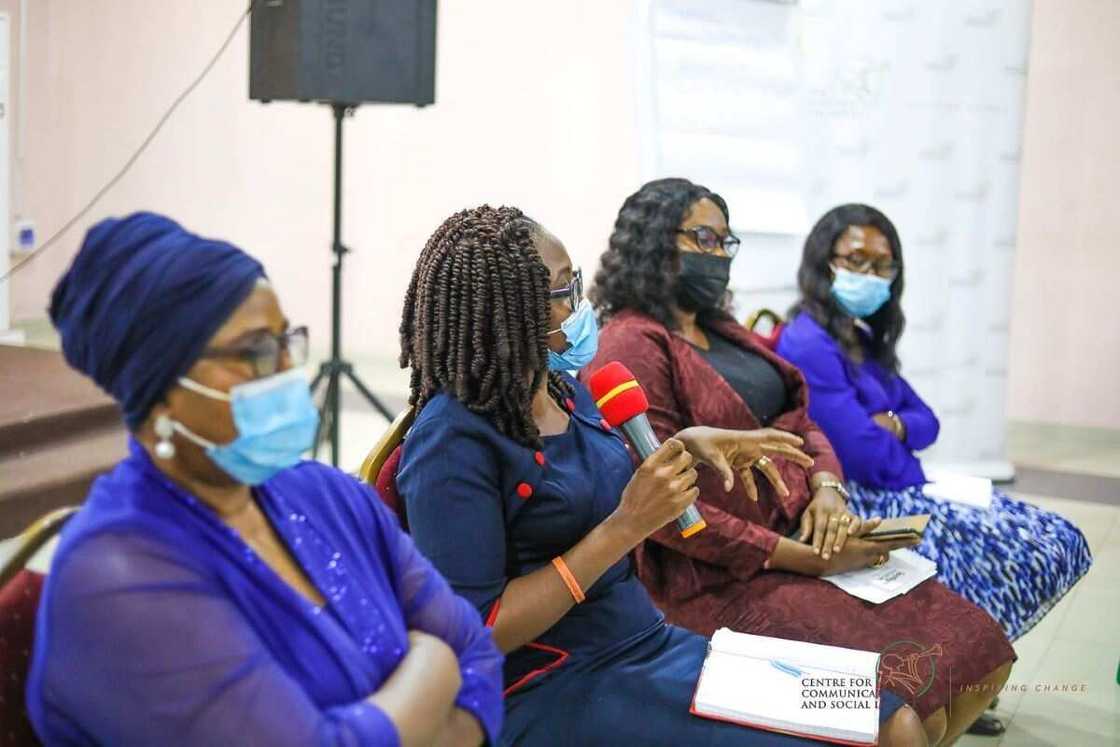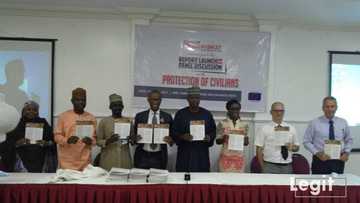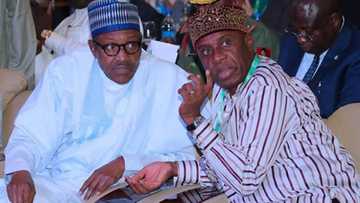Gender-Based Violence, Crime Against The State, Says FG
- Nigerians have been urged to always protect survivors of all forms of gender-based violence from further harm
- The federal government has also warned that any form of GBV is a crime against the Nigerian state and not just against the survivor of the criminal act
- Gender-based violence is said to thrive due to socio-cultural norms which are deep-rooted in the society
PAY ATTENTION: Click “See First” under the “Following” tab to see Legit.ng News on your Facebook News Feed!
In line with the commemoration of this year's '16 Days of Activisms Against Gender-Based Violence, the federal government has warned that every act of gender-based violence is a crime against the state and would be treated as such.
The declaration was made by the FG at a two-day workshop for the media on the national communication strategy on ending gender-based violence and harmful practices against women and girls in Nigeria.

Source: Facebook
The workshop which took place in Abuja on Tuesday and Wednesday, November 9 and 10, created a platform for the review of the national communication strategy document for gender-based violence, build capacity on reporting GBV and harmful practices and develop a cascade plan and measurable action points to roll out the communication strategy.
It was organised by the Centre for Communications and Social Impact in partnership with the European Union Spotlight Initiative, United Nations Populations Fund and the ministry of women affairs and social development.
PAY ATTENTION: Subscribe to Digital Talk newsletter to receive must-know business stories and succeed BIG!
The minister of women affairs, Pauline Tallen, addressing participants at the workshop said that sexual and gender-based violence is a crime against the Nigerian state and not just the survivor.
Nigerian government's target towards ending GBV
Represented by the assistant chief social welfare officer at the ministry, Victoria Lar, the minister said the government has the mandate to continue on legal steps against perpetrators of GBV in favour of a survivor.
She also said that the ministry works with the family support unit of the Nigeria Police that has the mandate to prosecute all cases of GBV while ensuring that the survivor is duly protected.
Lar said:
"SGBV is a crime against the state and not just the survivor. But sometimes, the survivors, when it gets to some point they (the survivors of GBV) disappear or even change location and at this point when the court needs testimony we cannot get and it trumps up the charges."
Clarifying the issues of the disappearance of survivors, Lar said factors such as culture, religious beliefs and social or family norms are responsible for withdrawal.
Also speaking, the head of GBV and data management at the ministry of women affairs and social development, Abia Udeme-Nsikak said the impact of such acts on survivors, families, communities and the nation at large cannot be over-emphasised.
Udeme-Nsikak said that preventing and responding to cases of violence against women and girls is the cornerstone of the government’s commitment to advancing the fundamental human rights of women.
She also said that the national communication strategy would strengthen the government approach to identify, coordinate, integrate, and leverage the current efforts and resources to address GBV across the country.
Interventions by civil society organisations
In her address, the executive director of CCSI, Babafunke Fagbemi, represented by Adenike Ayodele, the centre's programme officer said the initiative is guided by six reinforcement pillars - laws and policies, institutional strengthening, prevention of GBV, quality essential services for survivors of GBV, data management and women's movement and civil society organisations.
She said that with the help of the pillar women and girls can be given the opportunity to live free from all forms of SGBV and harmful practices.
For Chinyere Eyoh, the executive director, Sexual Offences Awareness and Response Initiative, GBV usually thrive due to socio-cultural norms which are deep-rooted in society.

Read also
Coca-Cola’s Project EQUIP Launches in Kano: Here Are 3 Areas the Initiative is Set to Tackle
Eyoh said patriarchal beliefs that survivors are wrong and that the argument that GBV are not human rights issues should be tackled legally.
She said:
"People are hiding under religion to perpetrate all sorts of human rights abuse knowing fully well that they will go scotfree without facing justice or the law. This has to stop."
She called on all stakeholders to endeavour to protect survivors of gender-based violence at all times while ensuring that perpetrators are made to face justice.
The strategy used by Abuja traditional leader to end GBV in his community
Meanwhile, Legit.ng previously reported that a traditional leader in an Abuja community said he uses various approaches to stem possible triggers of gender-based violence among his people.
The Esu of Galadimawa Community, Abuja, His Royal Highness Tanko Zhamiko said he works with members of his council, women inclusive, to sensitise residents of the community on identifying early warning signs of GBV.

Read also
Why Nigerian doctors are leaving country to other climes, NMA president makes stunning revelation
Zhamiko said members of the community are constantly informed about the need to always speak up and speak out in the face of any form of abuse or violence.
Media partnership with organisations to end GBV
Also, UNICEF had urged media organisations and journalists to partner with relevant agencies on issues surrounding men and girls in Nigeria.
The chief child protector for UNICEF, Ibrahim Sesay, said funds have been committed globally towards curbing all forms of violence against women and girls.
Sasay called for a conscious effort to protect victims of GBV violence in every media reporting involving women, girls and children.
Source: Legit.ng




